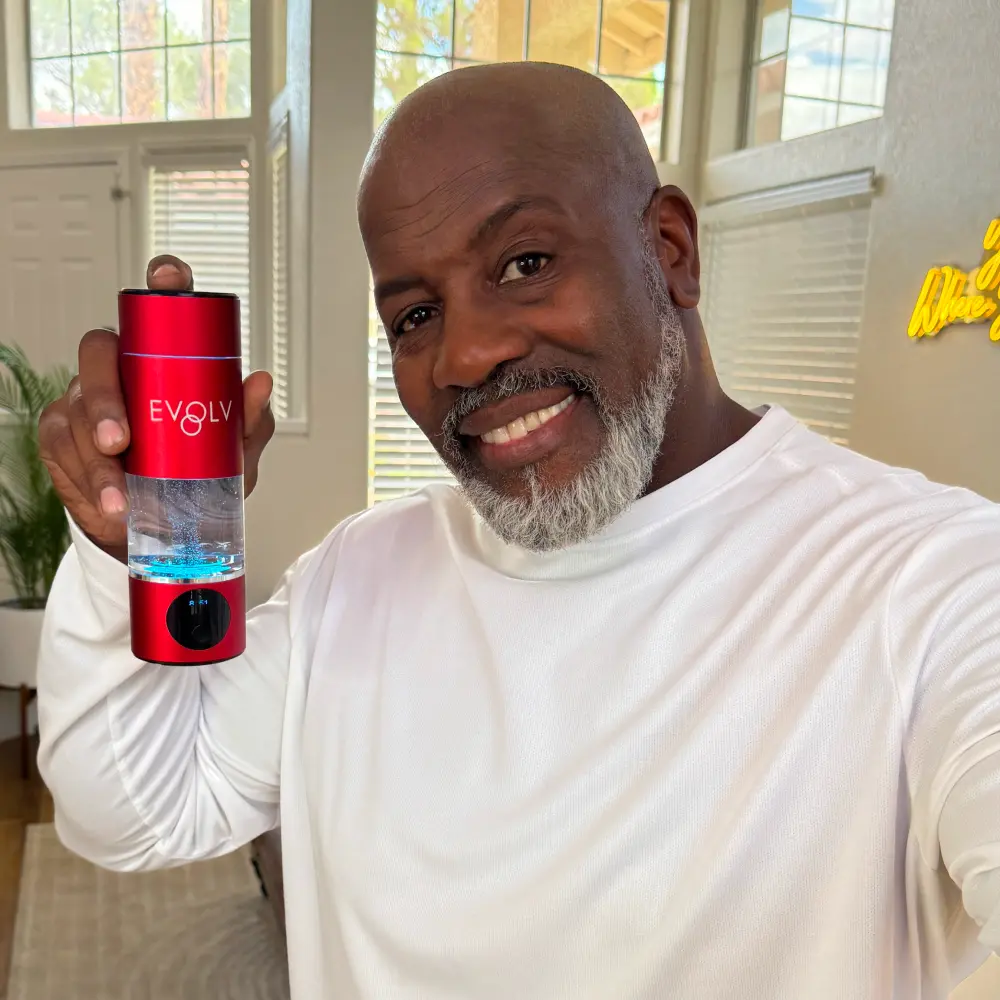
Investing in a hydrogen water bottle is one of the smartest moves you can make for your health. But if you want to truly maximize the benefits of hydrogen-rich water, it’s not just about owning one, it’s about using it correctly. Whether you're using the best hydrogen water bottle on the market or a portable hydrogen generator, proper care is essential for maintaining performance and purity. Like any health-focused technology, your hydrogen water bottle works best when it’s used mindfully, maintained properly, and treated as the wellness tool it is.
In this guide, we’ll break down the top dos and don’ts to help you get the most out of your H2 water experience, protect your investment, and keep your molecular hydrogen levels high. These best practices are simple but powerful, ensuring you enjoy consistently potent antioxidant water every time. Whether you're new to the world of hydrogen-infused water or a daily drinker aiming to fine-tune your hydration routine, this guide will help you use your bottle the way it was designed to be used, safely, efficiently, and effectively.
Hydrogen Water Bottle Dos
1. Do Use Fresh, Filtered Water
Always start with clean, filtered water. Tap water can contain chlorine or heavy metals that interfere with electrolysis. The best hydrogen water bottles, like EVOLV, use PEM/SPE technology to separate impurities, but starting clean is always best. Filtered water improves the performance of the electrolyzer plates and leads to higher concentrations of molecular hydrogen (H₂). It also helps extend the life of the internal components, preventing buildup from calcium or magnesium.
2. Do Drink Immediately After Generation
Hydrogen gas begins to dissipate quickly after production. To experience the therapeutic benefits of H2 water, drink it within 10–30 minutes after it's generated. The faster you consume it, the higher the concentration of hydrogen you’ll absorb into your system. Waiting too long, even with the cap on, can dramatically reduce the H2 potency, which is why fresh generation is key. For on-the-go hydration, choose a hydrogen water generator that produces high H2 levels quickly and efficiently.
3. Do Use a Bottle with Certified Materials
Look for lab-tested, BPA-free, and PFAS-free bottles. Premium models like EVOLV are third-party certified and built to last over 5 years. Certification ensures that no harmful chemicals are leaching into your water during electrolysis, especially when using heat or long-duration generation modes. Poor materials can compromise not only water quality but also your health. Using a certified bottle guarantees peace of mind and safety with every sip.
4. Do Charge and Clean Regularly
Keep your bottle fully charged and clean the electrodes or chamber as directed. This ensures consistent molecular hydrogen output and avoids buildup from minerals. Regular charging helps maintain strong electrolysis and keeps performance optimal. Cleaning prevents scale buildup on the electrolysis plates, which could reduce hydrogen production over time. Many bottles include cleaning reminders, don’t ignore them.
5. Do Store Properly
When not in use, keep your bottle in a cool, dry place. This helps preserve internal components and extends product life. Heat, humidity, and prolonged sun exposure can degrade the battery and the seals of the bottle, especially in travel situations. For extended storage, it’s best to empty and dry the bottle completely. Taking simple storage precautions ensures your investment stays effective and long-lasting.
Hydrogen Water Bottle Don’ts
1. Don’t Use Distilled or Mineral-Heavy Water
Avoid distilled water (it lacks conductivity) and hard water (it leaves residue). Stick to filtered water for best electrolysis and stable hydrogen generation. Distilled water won’t allow proper ion exchange, making it ineffective for hydrogen production. On the other hand, hard water can clog up the electrolysis system with calcium deposits. Over time, these can corrode your electrodes and lower the efficiency of your hydrogen water generator.
2. Don’t Leave H2 Water Sitting for Hours
Hydrogen-rich water loses potency if left open or sitting too long. Always drink fresh or store it in an airtight, vacuum-sealed container. Molecular hydrogen escapes quickly because it’s the smallest gas molecule known to science. Exposure to air, light, and heat accelerates its dissipation. To ensure you're receiving the full antioxidant benefit, aim to consume it shortly after it’s made.
3. Don’t Shake the Bottle
Shaking can accelerate hydrogen gas release, reducing the therapeutic dose before you even drink it. Gentle handling is best when dealing with hydrogen-infused water. If you're using a bottle that generates H2 on demand, wait until the process is complete before moving it. For optimal performance, avoid agitation and let the water sit quietly during electrolysis.
4. Don’t Ignore Maintenance
Skipping maintenance can damage the internal components and reduce hydrogen output. Follow the care instructions to keep your hydrogen water generator working like new. Ignoring buildup on the electrodes can cause your unit to malfunction or produce less H2 than intended. A quick weekly rinse or citric acid soak can make a huge difference in long-term reliability and health benefits.
5. Don’t Use Harsh Cleaners
Never use bleach or abrasive cleaners. These can degrade the electrodes and contaminate your H2 water. Instead, use a soft cloth and mild cleaning solutions or follow your manufacturer’s instructions for safe cleaning. Harsh chemicals can destroy the integrity of the electrolysis chamber and reduce both safety and performance. Keeping your bottle clean the right way will ensure it stays effective for years to come.
Hydrogen Bottle FAQ
What makes EVOLV the best hydrogen water bottle on the market?
EVOLV delivers up to 11x more molecular hydrogen than others with advanced SPE/PEM electrolysis. It’s dual lab-tested, vented for purity, and built to last over 5 years with medical-grade components.
How does EVOLV compare to other hydrogen water bottles?
EVOLV produces higher H2 levels and safely removes byproducts like ozone and chlorine. It’s lab-certified, PFAS- and BPA-free, and lasts longer than most low-cost alternatives, which often degrade or underperform.
Does hydrogen water taste different compared to regular water?
No, it tastes the same as the water you use. Hydrogen infusion doesn’t affect flavor at all, making it a seamless addition to your hydration routine.
References
Ichihara, M., Sobue, S., Ito, M., Ito, M., Hirayama, M., Ohno, K., & Ichihara, M. (2015). Beneficial biological effects and the underlying mechanisms of molecular hydrogen—Comprehensive review of 321 original articles. Medical Gas Research, 5(1), 12. https://doi.org/10.1186/s13618-015-0035-1
Ohta, S. (2012). Molecular hydrogen as a preventive and therapeutic medical gas: Initiation, development and potential of hydrogen medicine. Pharmacology & Therapeutics, 144(1), 1–11. https://doi.org/10.1016/j.pharmthera.2014.04.006
LeBaron, T. W., Kura, B., Kalocayova, B., Tribulova, N., & Slezak, J. (2019). A new approach for the prevention and treatment of cardiovascular disorders: Molecular hydrogen significantly reduces the effects of oxidative stress. Medical Gas Research, 9(2), 73–80. https://doi.org/10.4103/2045-9912.259301
Nakao, A., Toyoda, Y., Sharma, P., Evans, M., & Guthrie, N. (2010). Effectiveness of hydrogen rich water on antioxidant status of subjects with potential metabolic syndrome—An open label pilot study. Journal of Clinical Biochemistry and Nutrition, 46(2), 140–149. https://doi.org/10.3164/jcbn.09-100
Hayashi, H., & Kawamura, M. (2005). Electrolyzed-reduced water and its health benefits. White Paper. Available through H2 Foundation & Research Compilations.
Higashikawa, Y., Kurokawa, R., Kato, S., Kageyama, Y., & Nitta, Y. (2016). Preservation of dissolved hydrogen in drinking water in commercially available containers. Medical Gas Research, 6(3), 151–156. https://doi.org/10.4103/2045-9912.191360











